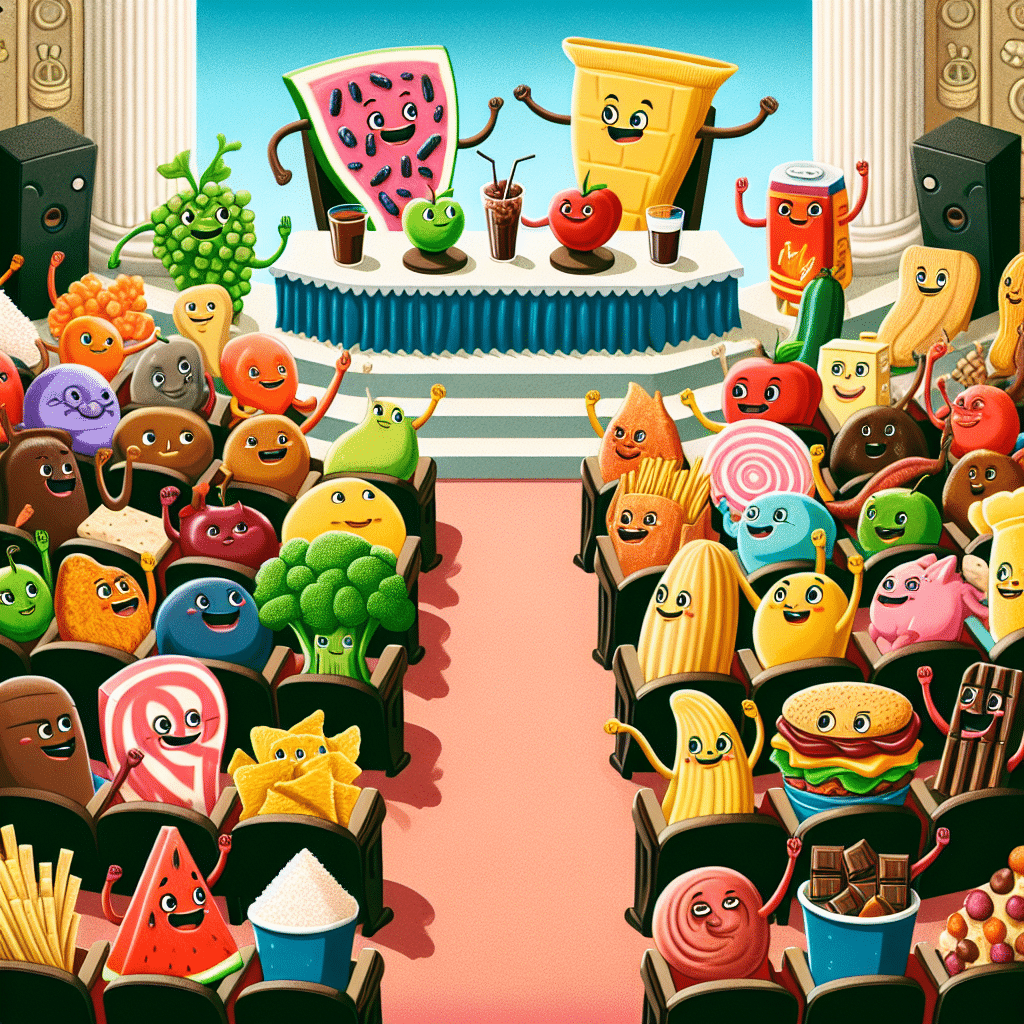Snacking: Debating Its Role in a Healthy Diet
-
Table of Contents
Snacking: Exploring Its Role in a Healthy Diet
Snacking has become a ubiquitous part of modern eating habits, with many people reaching for a mid-morning granola bar or an afternoon piece of fruit. However, the role of snacking in a healthy diet is a subject of ongoing debate among nutritionists, dietitians, and health-conscious individuals. This article delves into the various perspectives on snacking, supported by research, examples, and statistics, to provide a comprehensive understanding of its place in our diets.
The Case for Snacking
Advocates for snacking argue that it can be a beneficial addition to a healthy diet when done correctly. Here are some of the reasons why snacking is seen in a positive light:
- Energy Balance: Snacking can help maintain energy levels throughout the day, preventing the energy dips that often lead to overeating at meal times.
- Metabolism Boost: Some studies suggest that eating small, frequent meals can keep the metabolism active, potentially aiding in weight management.
- Nutrient Intake: Healthy snacks can contribute to the overall nutrient profile of one’s diet, adding vitamins, minerals, and fiber that might be missing from main meals.
- Appetite Control: Snacking can help control hunger and reduce the likelihood of overeating by keeping blood sugar levels stable.
For example, a study published in the Journal of Nutrition and Metabolism found that participants who consumed a high-protein snack in the afternoon had better appetite control and consumed fewer calories at dinner compared to those who did not snack.
The Case Against Snacking
On the flip side, some health experts caution against frequent snacking, citing several potential drawbacks:
- Caloric Overload: Snacking can lead to an increased overall calorie intake, especially when the snacks are high in sugar and fat.
- Disrupted Hunger Cues: Constant snacking may interfere with the body’s natural hunger signals, making it harder to recognize true hunger.
- Unhealthy Choices: The convenience of processed snacks often leads to poor nutritional choices, contributing to health issues like obesity and diabetes.
- Dental Health: Frequent snacking, particularly on sugary foods, can increase the risk of tooth decay and other dental problems.
Statistics from the National Health and Nutrition Examination Survey indicate that snacking accounts for a significant portion of daily caloric intake, with many snacks being high in sugar and saturated fats.
Striking a Balance: Best Practices for Healthy Snacking
To reconcile the conflicting views on snacking, it’s essential to consider best practices that can make snacking a healthy part of one’s diet:
- Choose Nutrient-Dense Snacks: Opt for snacks that provide nutritional value, such as fruits, vegetables, nuts, and whole grains.
- Watch Portion Sizes: Keep snack portions reasonable to avoid excessive calorie consumption.
- Plan Ahead: Prepare healthy snacks in advance to avoid the temptation of convenient but unhealthy options.
- Listen to Your Body: Snack only when you’re truly hungry, not out of boredom or habit.
By following these guidelines, individuals can enjoy the benefits of snacking without the negative consequences.
Case Studies: Snacking in Different Populations
Research on snacking habits across various populations provides insight into its role in a healthy diet:
- A study on children’s snacking patterns revealed that those who consumed more fruits and vegetables as snacks had better overall diet quality.
- In contrast, a survey of office workers found that easy access to vending machines and office snacks led to increased consumption of high-calorie, low-nutrient foods.
- Elderly populations benefit from snacking due to increased nutrient needs and decreased appetite, as long as the snacks are healthy and portion-controlled.
These case studies highlight the importance of context when considering the role of snacking in a diet.
Conclusion: The Verdict on Snacking
In conclusion, snacking can be either beneficial or detrimental to a healthy diet, depending on the approach. By choosing nutrient-dense options, controlling portions, and listening to the body’s hunger cues, snacking can support energy levels, metabolism, and nutrient intake without contributing to weight gain or other health issues. It’s crucial to individualize snacking habits based on personal health goals, lifestyle, and dietary needs.
Enhance Your Snacking with ETChem’s Protein Products
For those looking to incorporate healthy snacks into their diet, ETChem’s protein products offer a nutritious option. Their high-quality collagens, including marine, fish, bovine, and chicken collagen, provide a protein-rich snack that supports a balanced diet. These products are perfect for individuals seeking to maintain energy levels and control appetite while ensuring adequate protein intake.
About ETChem:
ETChem, a reputable Chinese Collagen factory manufacturer and supplier, is renowned for producing, stocking, exporting, and delivering the highest quality collagens. They include marine collagen, fish collagen, bovine collagen, chicken collagen, type I collagen, type II collagen and type III collagen etc. Their offerings, characterized by a neutral taste, instant solubility attributes, cater to a diverse range of industries. They serve nutraceutical, pharmaceutical, cosmeceutical, veterinary, as well as food and beverage finished product distributors, traders, and manufacturers across Europe, USA, Canada, Australia, Thailand, Japan, Korea, Brazil, and Chile, among others.
ETChem specialization includes exporting and delivering tailor-made collagen powder and finished collagen nutritional supplements. Their extensive product range covers sectors like Food and Beverage, Sports Nutrition, Weight Management, Dietary Supplements, Health and Wellness Products, ensuring comprehensive solutions to meet all your protein needs.
As a trusted company by leading global food and beverage brands and Fortune 500 companies, ETChem reinforces China’s reputation in the global arena. For more information or to sample their products, please contact them and email karen(at)et-chem.com today.





